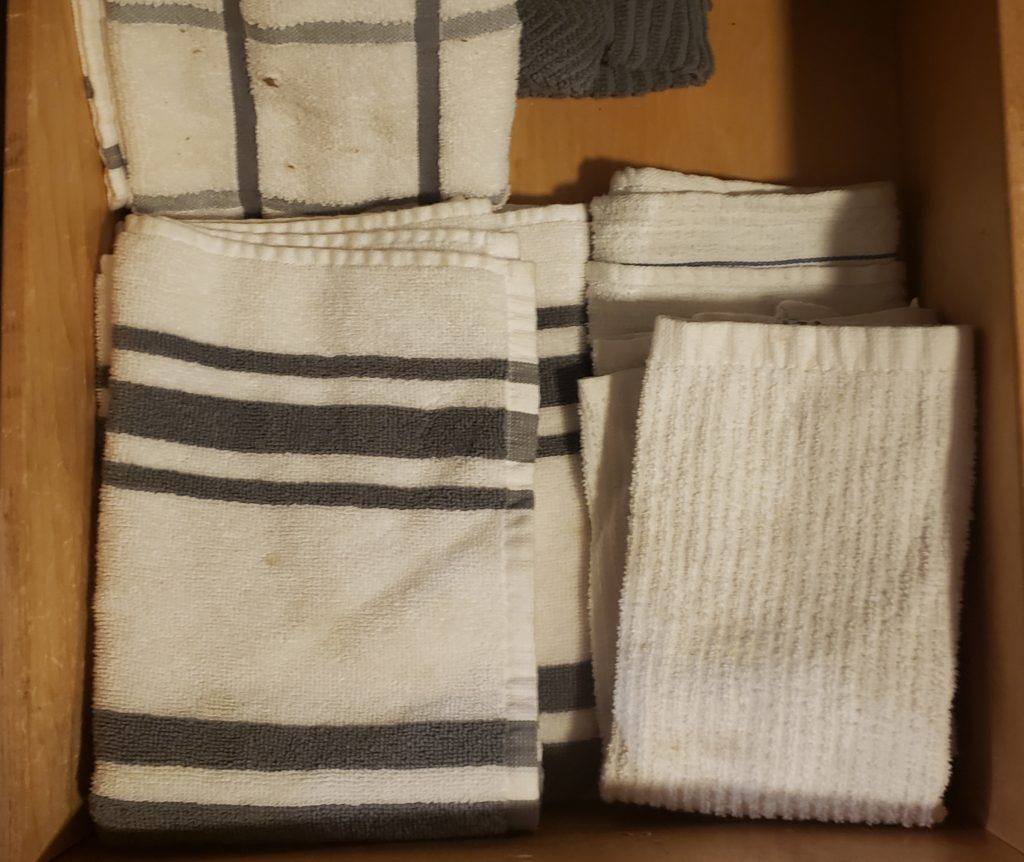
There are many great resources available to help guide my grief process. I recommend these two books that prepared me for my loss. Being Mortal, by Atul Gawande and Final Gifts, by Maggie Callanan and Patricia Kelley. It’s so helpful to hear from people who are a little further down the road that I am and listen to them describe what’s coming. But in all my reading, there has been one experience that I’ve found doesn’t have clear guidance.
Moving through loss involves the adaptation to a new lifestyle. My life involved a dance with a partner for nearly 30 years that I no longer accommodate now. Partnership is full of intentional acts (some big, mostly small) of deference. These acts were ingrained in me from the beginning of my relationship and I learned over time to assimilate the needs and desires of another person into my own.
Towels for example. When we got married, I folded towels one way and she folded them another. I wish I could say I was mature enough at the time to let that one go, but I felt the need to describe why my way of folding was superior. My enjoyment of harmony led me to not die on that battlefield and since laundry was one of her tasks along our divisions of labor, she got to choose how the towels would be folded.
Now that I do the laundry, can I go back to folding them my way again?
It’s fascinating how something as little as changing how a towel is folded in half or in thirds can become a personal quandary. My mental talk starts with “I guess I can go back to doing it my way now” but quickly flips over to “but do I dishonor her memory by changing?”
The conclusion I have come to is this: If it bugs me to change, maybe now isn’t the right time.
Loss leads me to many decisions like this. Some are easier than others. My daughter and I already went through her clothes. But some of my friends still haven’t gone through any personal items long after the passing of their loved one. Neither is right but sentiment does have a way of getting stuck. I keep this story in mind as I progress.
Karen provided care for a few years to an elderly woman who lost her husband. She would take her to the grocery store, the post office and on other errands. But she noticed over time that her friend was not coping very well with her loss. Being the practical type, Karen decided to volunteer to help get her house cleaned up and organized, since it appeared nothing had been kept up for many months.
She went over to her house one Saturday morning to get started, and it didn’t take long for her to recognize that this was not going to be an easy task. With every bag of trash Karen filled, her friend would start going through it, retrieving papers that reminded her of her husband. In frustration, Karen stopped and said sternly, “You’re just throwing away his old papers. You’re not throwing away Larry!”
That was a funny story then, and it’s even funny now that it applies to me. I find myself saying Karen’s words to myself over again as I rummage through the bathroom closet and find 7 pairs of nail clippers or the kitchen cabinet and find 37 coffee cups.
“I’m just throwing away nail clippers and coffee cups. I’m not throwing away Karen.”
Grief will require choices be made eventually and I can’t tell you when the right time to make them is. My experience this morning is to make the easy choices first, and that will lend permission to make the harder ones at a later time.
I fold the towels in thirds now.

Good thoughts.